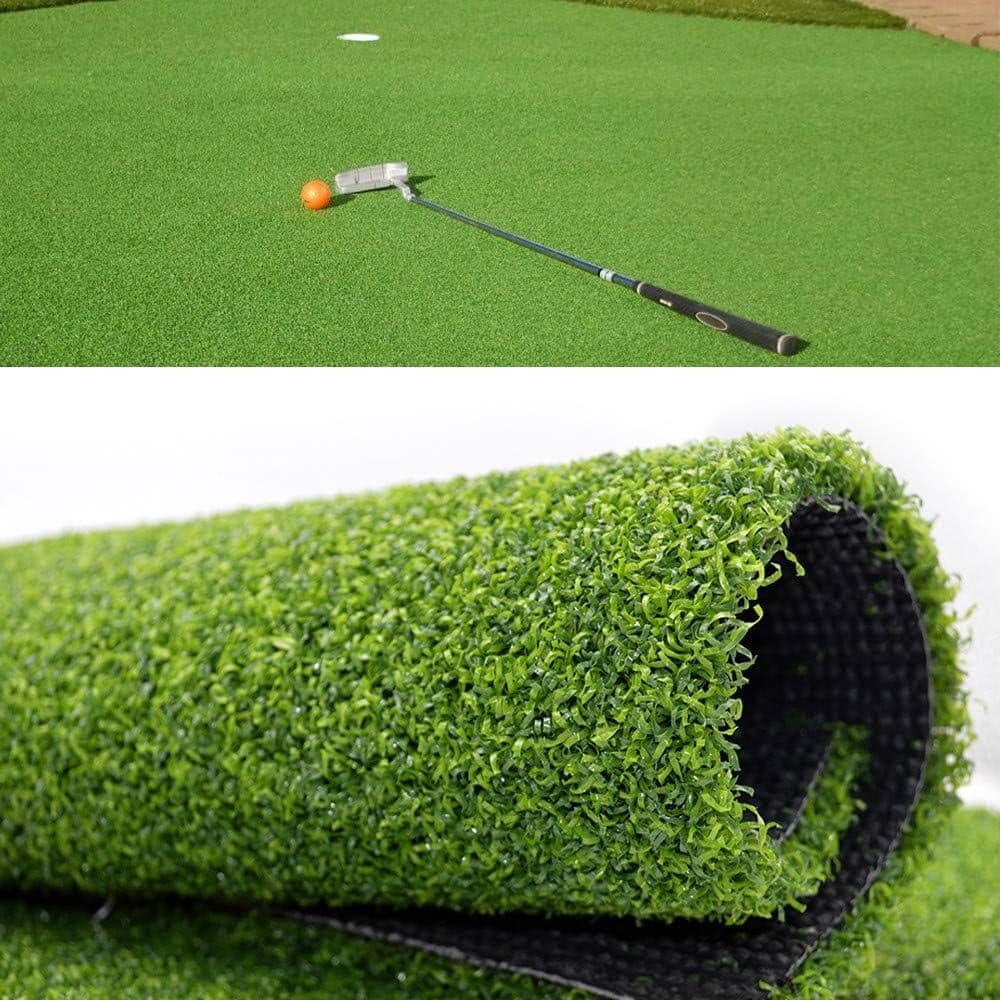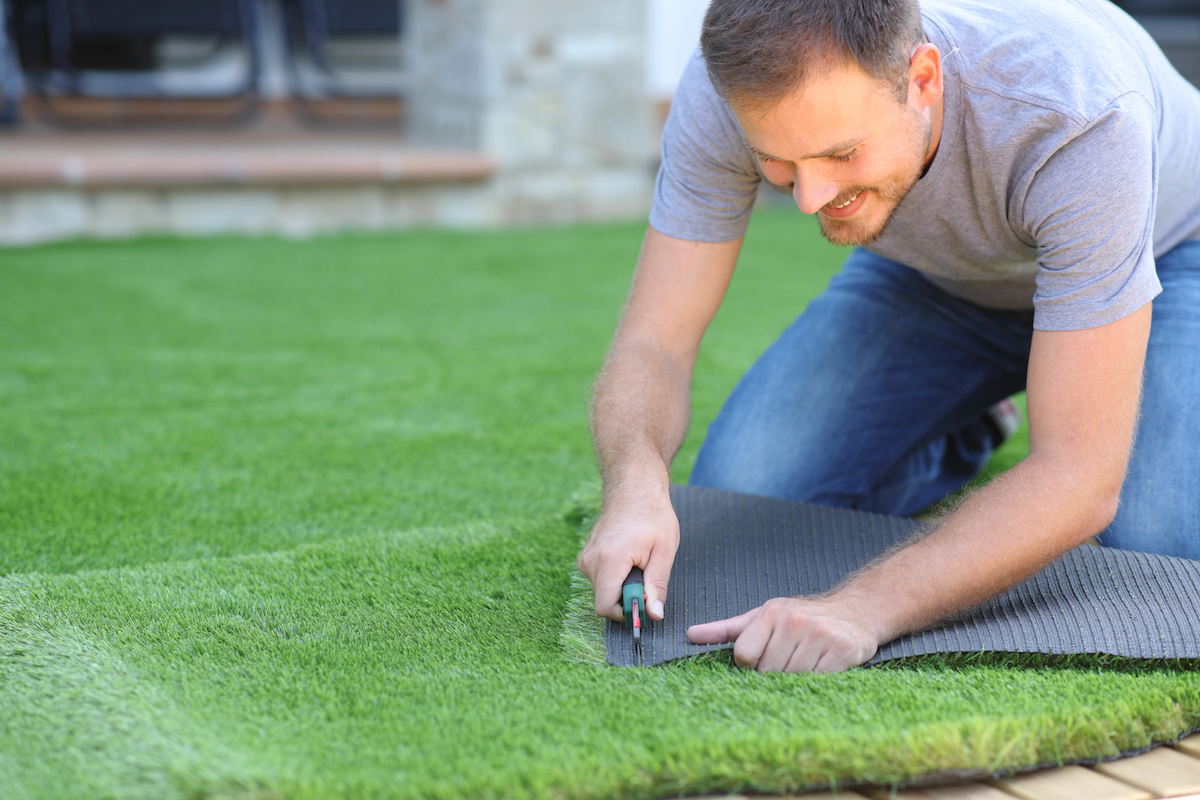Trusted Phoenix Turf Companies Providing Superior Synthetic Grass Installation
Trusted Phoenix Turf Companies Providing Superior Synthetic Grass Installation
Blog Article
Delve Into the Environmental Advantages of Opting for Synthetic Grass Solutions
The adoption of man-made lawn solutions presents an engaging chance to attend to pushing environmental difficulties. By substantially lowering water use and decreasing the application of hazardous chemicals, these alternatives not just advertise sustainable landscape design yet also protect local ecosystems.
Water Preservation Conveniences
One of the most significant benefits of man-made grass is its ability to save water. In comparison, artificial turf does not require watering, considerably reducing the total demand for water resources.
By removing the demand for normal watering, synthetic grass contributes to sustainable landscape techniques and assists reduce the environmental influence of excessive water usage. Furthermore, the conservation of water encompasses the decrease of drainage, which can cause dirt erosion and waterway air pollution.
Additionally, the installation of artificial grass allows property owners and municipalities to allot water resources extra successfully, concentrating on important usages such as alcohol consumption water and agriculture. The shift in the direction of synthetic grass not just advertises liable water usage yet likewise lines up with more comprehensive ecological objectives targeted at preserving all-natural resources.
As areas progressively focus on sustainability, the water conservation benefits of synthetic grass offer a compelling situation for its fostering in business and household landscape design projects.
Lowered Chemical Use
The shift to synthetic grass substantially decreases the reliance on chemical therapies generally utilized in natural turf maintenance. Standard grass monitoring normally involves the application of chemicals, fertilizers, and herbicides to promote growth and control bugs. These chemicals can posture risks to human health, local wildlife, and the setting, adding to soil and water contamination.
On the other hand, synthetic grass gets rid of the demand for these damaging substances. Once mounted, it calls for marginal maintenance, largely being composed of normal cleansing and infrequent infill replenishment. This reduction in chemical usage not just benefits the immediate environment yet likewise adds to wider environmental stability. By reducing the release of artificial compounds into the environment, artificial grass promotes healthier soil and water systems.
In addition, the lack of chemical drainage connected with synthetic grass setups helps shield local rivers from contamination, supporting marine life and preserving biodiversity. Turf installation phoenix az. As neighborhoods significantly prioritize lasting techniques, choosing for synthetic lawn offers a sensible remedy that aligns with environmental preservation objectives. With this change, homeowner can delight in lavish eco-friendly spaces without compromising ecological health, leading the way for a much more sustainable future
Reduced Carbon Footprint

Moreover, the installation of synthetic grass can cause significant water conservation. All-natural lawns call for substantial quantities of water for irrigation, which not only contributes to the carbon footprint associated with water removal and treatment yet likewise stress local water resources. In comparison, synthetic grass needs minimal maintenance, needing no watering, thus significantly minimizing water usage and its linked power expenses.
Furthermore, the longevity of synthetic grass adds to its lower carbon effect. With a life expectancy of up to 15 years or more, the requirement for regular replacements is reduced, leading to less waste and reduced energy intake in manufacturing and disposing of conventional lawn choices. In general, man-made turf offers a sustainable alternative for eco conscious landscaping.
Environment Conservation
Environment preservation is an essential consideration in the argument over landscaping options, particularly when comparing synthetic grass to natural turf. All-natural lawn yards frequently need considerable maintenance, including the usage of herbicides, plant foods, and chemicals, which can detrimentally impact neighborhood environments. These chemicals can seep right into the dirt and rivers, harming indigenous plants and animals and interrupting neighborhood habitats.
Synthetic turf removes the demand for damaging chemicals, thereby securing neighboring wild animals and maintaining the honesty of bordering environments. The setup of fabricated turf can lead to the conversion of previous yard areas right into even more biodiverse landscapes, such as pollinator yards or native plant locations, which can sustain neighborhood wild animals.
Ultimately, the shift to synthetic grass not only conserves water and decreases upkeep initiatives but also fosters an extra unified partnership in between human activities and the natural surroundings, advertising habitat preservation while doing so.
Long-Term Sustainability
Long-term sustainability is a critical variable in evaluating the benefits of synthetic grass over standard grass yards. Among the most substantial benefits of synthetic grass is its resilience; it can last approximately 15-20 years check that with minimal maintenance, whereas natural grass requires regular reseeding and replacement. This durability reduces the need for constant sources, such as water, plant foods, and chemicals, which are essential for maintaining a healthy turf lawn.
Furthermore, synthetic grass adds to a decrease in carbon exhausts related to grass care devices. Standard lawns typically require gas-powered lawn mowers, trimmers, and blowers, every one of which add to air pollution. Arizona turf. On the other hand, synthetic grass gets rid of the requirement for such equipment, advertising a cleaner setting
Additionally, about his the production of synthetic lawn significantly utilizes recycled materials, boosting its sustainability profile. As suppliers adopt environment-friendly methods, the environmental impact of synthetic grass remains to reduce.

Verdict
The adoption of man-made lawn services provides substantial ecological advantages, consisting of substantial water preservation, decreased dependence on damaging chemicals, and a reduced carbon impact. Furthermore, man-made lawn aids in preserving natural habitats by reducing land disturbance and promoting lasting sustainability through the use of durable products. Collectively, these factors emphasize the potential of man-made grass to contribute favorably to ecological health and wellness and use a practical alternative to standard landscaping methods in a progressively resource-conscious globe.
In comparison, artificial lawn does not require watering, dramatically lowering the overall demand for water resources. web link By reducing the release of artificial substances right into the ecological community, artificial turf promotes healthier dirt and water systems.
Moreover, the setup of man-made turf can result in considerable water preservation. In contrast, artificial turf needs very little upkeep, requiring no watering, thus considerably reducing water use and its linked power prices.

Report this page